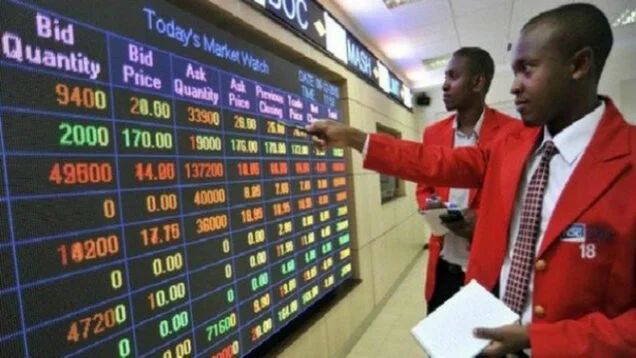The Nigerian Stock Exchange (NSE) kicked off 2020 with a robust performance on January 6, as the All Share Index (ASI) climbed 1.4% to close at 27,339.68 points, adding N179.1 billion to investors’ wealth.
Buying interest in major stocks like Dangote Cement (+2.8%), Guaranty Trust Bank (+3.0%), and Zenith Bank (+3.9%) propelled the market, boosting market capitalisation to N13.2 trillion.
Market Performance and Key Drivers
The ASI rose 138 basis points, driven by gains in highly capitalised stocks. Trading activity showed mixed dynamics: volume traded fell 14.5% to 520.4 million units, while value traded surged 42.3% to N5.4 billion.
Zenith Bank topped trading by volume (97.1 million units) and value (N1.9 billion), followed by Universal Insurance (70.0 million units), UBA (62.7 million units), Seplat (N670.0 million), and Guaranty Trust Bank (N586.4 million).
Sectoral performance was broadly positive, with the Banking Index leading at a 3.9% gain, fueled by Guaranty Trust Bank and Zenith Bank.
The Industrial Goods Index advanced 1.6%, supported by Dangote Cement (+2.8%) and WAPCO (+0.7%), while the Insurance Index gained 0.8% due to LASACO Insurance (+8.0%) and WAPIC Insurance (+2.9%).
The Consumer Goods and Oil & Gas Indices rose 0.5% and 0.4%, respectively, with gains in Dangote Sugar (+6.0%), Flour Mills Nigeria (+6.3%), Oando (+4.1%), and Conoil (+2.2%). The AFR-ICT Index declined 0.5%, weighed down by MTN Nigeria’s 0.1% drop.
Investor Sentiment and Top Performers
Investor sentiment improved, with a market breadth of 30 gainers versus 13 losers. Top performers included FCMB (+10.0%), Cornerstone Insurance (+9.4%), and Unity Bank (+9.0%), while PZ (-9.7%), Union Diagnostic (-9.1%), and Niger Insurance (-9.1%) recorded the largest losses.
Analysts at Afrinvest Research predicted sustained gains, stating, “Following the recent trend in the market, we expect the market to continue its gaining streak this week.”
The rally builds on a low interest rate environment, with the Central Bank of Nigeria maintaining rates at 13.5% to stimulate growth post-2019.
Economic Context
The market’s strong start contrasts with Nigeria’s economic challenges, including 11.98% inflation and 23.1% unemployment in Q4 2019, per the National Bureau of Statistics.
The low-interest-rate policy has driven investors to equities, with the ASI poised for further gains after a 7.5% increase in 2019, though global oil price volatility and security concerns in northern Nigeria remain risks.






